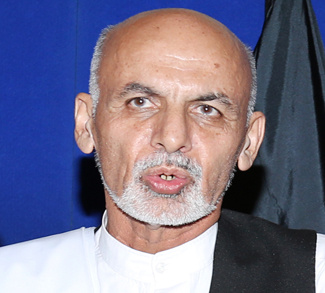In light of the U.S. withdrawal from Afghanistan, there are two competing logics on the implications for U.S. security commitments to allies and partners in East Asia.
The first logic: The United States does not hesitate to abandon friends and allies abruptly; therefore, East Asian states should rethink allying with the United States, lest face the same fate as Afghanistan. East Asian countries, especially Taiwan, cannot rely upon U.S. security guarantees.
Chinese wolf warrior diplomats and nationalist state news sources concertedly spread this message. A Global Times editorial reads: “From what happened in Afghanistan, those in Taiwan should perceive that once a war breaks out in the Straits, the island’s defense will collapse in hours and US military won’t come to help. As a result, the DPP will quickly surrender.” Editor-in-chief, Hu Xijin, tweeted: “After the fall of the Kabul regime, the Taiwan authorities must be trembling.” These are obnoxious forms of the logic. Professor of international relations at Taipei National Chenchi University, Arthur Ding, dismisses these warnings as “cheap psychological warfare.” Beijing has an incentive to cast doubt on U.S. partners and allies in the region, since these states would potentially draw closer to China if they are wary of U.S. commitments.
Global Times is an extreme case. The logic of course has its more moderate proponents. Professor of International Relations at Jinan University, Dingding Chen, tweeted that the “implications for Taiwan are real… it is not that US commitment to it is now fading, it is the logic that the USA will abandon its ally WHEN its national interests are no longer served by the ally.”
Obviously, the message is not exclusively coming from China. Republican Senator Ben Sasse released a statement that reads: “our allies will trust us less and our adversaries fear us less. China is already exploiting this latest instance of American retreat.”
As a further case, the Trump administration’s December 2019 withdrawal from north Syria was rendered to have instilled similar worries. The exact same discussions over U.S. commitments to East Asia erupted, since, the Trump administration abandoned and betrayed longtime loyal ally, the Kurds.
There is, however, second logic that contradicts the first: The U.S. withdrawal from Afghanistan reflects a rebalance to countering China; therefore, regional competitors of China should be encouraged, rather than dismayed, by shuffling U.S. priorities. Defense Secretary Lloyd Austin’s recent mission to Vietnam and the Philippines, as well as advocacy for “integrated deterrence”, indicates that the Biden administration is implementing this rebalance. The South and East China seas are the Biden administration’s primary areas of focus—not Iraq, Syria, or Afghanistan.
But rebalancing security priorities away from counterterrorism toward great power competition is really not straightforward. The U.S. withdrawal from Afghanistan could have strategic ramifications for East Asia. Afghanistan was the sole state to have a land border with China and house U.S. forces. Vance Serchuk, an adjunct senior fellow at the Center for a New American Security, argues that U.S. withdrawal could result in commitments to Afghanistan less evenly distributed among NATO members in future operations. Not every NATO member has the resources and finance to carry out an “over the horizon” approach. Furthermore, since Southeast Asian states Indonesia, Thailand, Malaysia, and the Philippines all struggle with Islamic militant groups, a rejuvenated terrorist hub in Afghanistan could exacerbate conflicts and the participation of foreign fighters.
To advance the second logic, many highlight that it’s methodologically problematic to view East Asian countries—especially Taiwan—as the same as Afghanistan. Taiwan is an integral part of the U.S. security apparatus in the Asia-Pacific broadly; on the other hand, the mission in Afghanistan’s “only vital interest” according to Biden’s August 16 remarks was to stop terrorist attacks on U.S. soil (a tenuous claim). The linkages between Taipei and Washington are significantly closer than those of the former Afghan regime and Washington, as the Sino-American Mutual Defense Treaty dates back to 1955. While Jimmy Carter annulled this treaty due to the United States’ newfound relationship with Communist China, the Taiwan Relations Act still requires Congress to provide weaponry for Taiwan’s defense. Taiwan is similarly a high-functioning liberal democracy that the United States upholds in an ideological competition with China. In Washington’s cold strategic calculation, Taiwan holds more national interest than Afghanistan. To summarize, using the words of U.S. National Security Adviser Jake Sullivan at his White House briefing, “When it comes to Taiwan, it is a fundamentally different question, in a different context.”
Perceptions matter
The U.S. withdrawal from Afghanistan and betrayal of the Kurds warrants severe moral condemnation. These events also carry major strategic ramifications for the United States. When it comes to East Asia, are there necessarily implications for U.S. security commitments?
This article has outlined two competing logics. In the end, it is the perceptions of East Asian states and their leaders that will decide the meaning of U.S. withdrawal, in the context of American security commitments to the region. This kind of analysis is an undertaking for empiricism, not rationalism.
Many U.S. experts are steadfast that it is illogical to doubt U.S. commitments to Taiwan in light of the withdrawal. When it comes to perceptions, though, it may be telling that on August 18 Taiwanese President Tsai Ing-wen posted: “Recent changes in the situation in Afghanistan have led to much discussion in Taiwan… it’s not an option for us to do nothing on our own and just to rely on other people’s protection.” Members of the Kuomintang (KMT) have gone further to explicitly liken Taiwan with Afghanistan. Jaw Shaw-kong, a KMT politician and media personality, cast doubt on the U.S.-Taiwan relationship in a Facebook post that received 17,000 likes and much discussion. While these messages receive traction, they still get more backlash. And the rebuttals are often strongly spirited. For the most part, Taiwanese leaders and people remain confident in U.S. security guarantees, even if the withdrawal from Afghanistan sparked some discomforting conversations.
The views expressed in this article are those of the authors alone and do not necessarily reflect those of Geopoliticalmonitor.com




